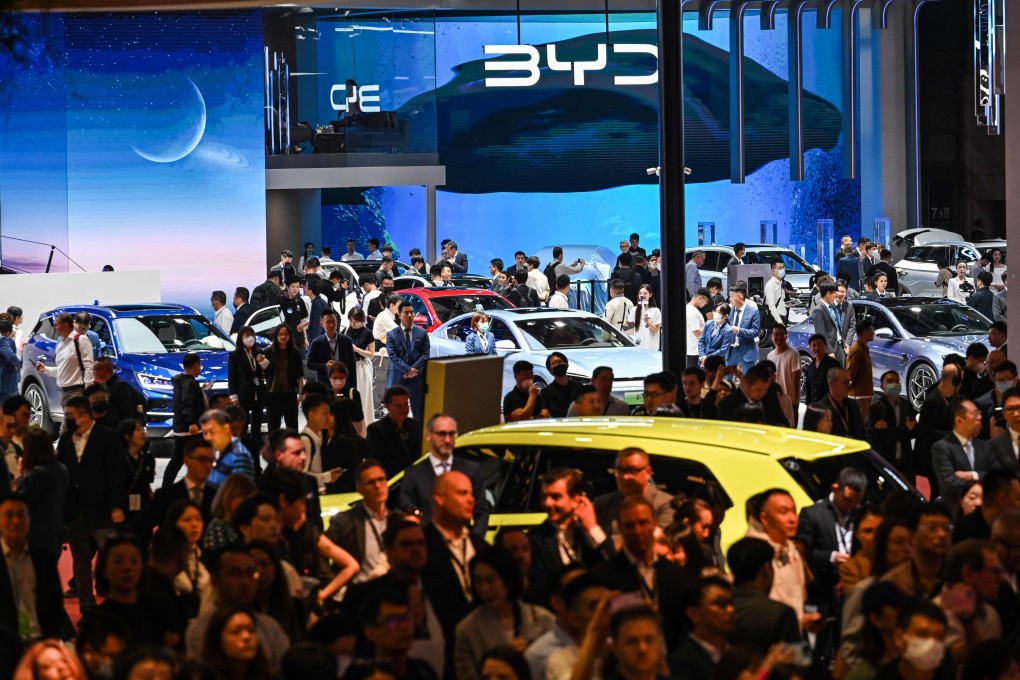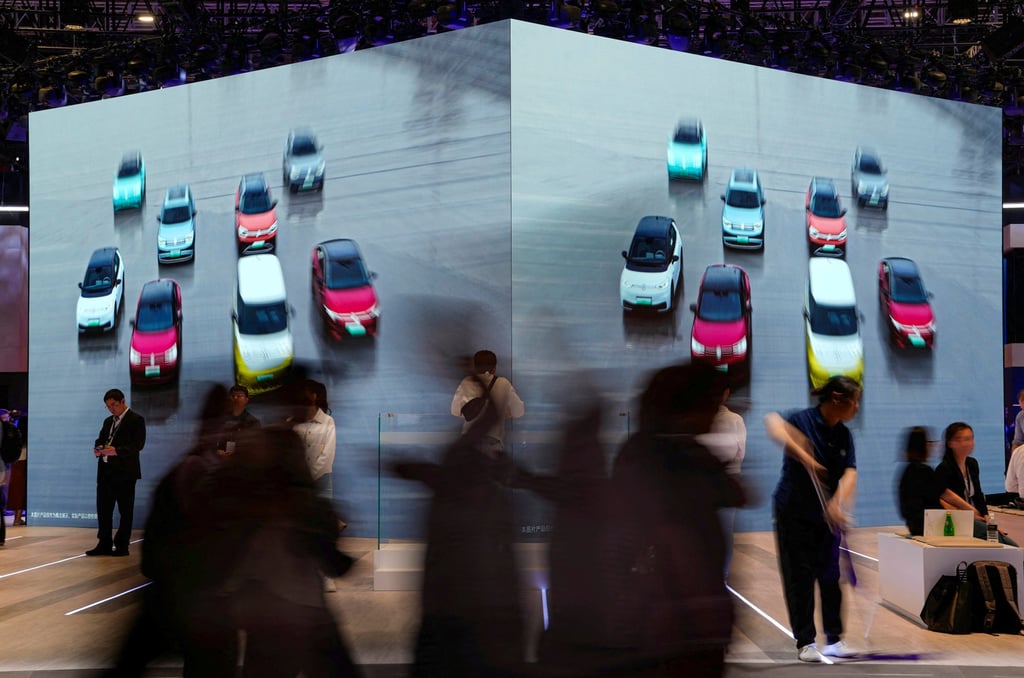Shanghai Auto Show: Honda, Toyota, Nissan and VW unveil EVs as price war dominates discussions amid bleak sales outlook
- Chinese carmakers will continue to offer discounts well into the second half of the year as the debilitating price war shows no signs of slowing down, executives say
- Overall car sales in March rose by 0.3 per cent, the weakest for the month since 2020, according to the China Passenger Car Association

Chinese carmakers, who have been embroiled in an intense price war that has hurt sales and profitability, will continue to offer discounts well into the second half amid weak demand, industry observers said.
The price cuts, spearheaded by Tesla, will eventually lead to the closure of a large number of underachieving small players in the next five years because of the cutthroat competition in the world’s largest automotive market, they added.
At the Shanghai Auto Show that started on Tuesday, the topic was widely discussed as industry insiders vented their disappointment over the latest sales numbers, saying the outlook for the market this year is bleak.
“The price war did not effectively buoy the market,” said Gao Shen, an independent analyst in Shanghai. “Industry executives are worried that they will have to further cut prices to woo customers.”

Overall sales of both petrol and battery-powered vehicles in China rose by 0.3 per cent year on year to 1.59 million units in March, the smallest increase for the month since 2020, according to the China Passenger Car Association.